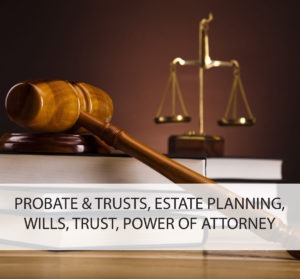We all know that you can find “Do It Yourself” Wills online. We all know that it costs less money to do your own estate plan than to hire an attorney.
But… what if you press the wrong key when answering the prompts? What if you don’t know how to even answer the question in the prompt?
A few years ago, new clients asked me to review their DYI estate plan. On the bottom of each page in very small print were the words “Nebraska Law applies”. I asked my clients if they lived in Nebraska when they did their Wills. They NEVER lived in Nebraska!
Another client called to say her Durable Power of Attorney was refused by an insurance company. The Do It Yourself document did not include the language required to deal with insurance companies.
And, even more disastrous, was the client whose Will’s beneficiaries included a physically disabled adult child who was receiving federal benefits. These benefits would be lost as soon as the child inherited his rather modest bequest. Did these parents ever hear of a Special Needs Trust? No, the forms they used didn’t have such a provision.
So… remember the old line, penny wise, pound foolish? Do It Yourself documents are plain dangerous. The cost of using a good estate planning attorney could save you or your heirs much more.
Call the Law Offices of Debra G. Simms at 386.256.4882 to learn more.
This blog post is not case-specific and is provided only for educational purposes and is not intended to provide specific legal advice. Blog topics may or may not be updated and entries may be out-of-date at the time you view them.

 If we spare even a fraction of the time we spent on earning all that money and building those assets, we would be able to ensure that it stays in the right hands even when we are not around to look after them. The federal law provides multiple legal options for you to choose form in order to facilitate a judicious planning of your property and assets. We are here to help you understand the various legal rights of a valid US citizen in managing his property and estate while he/she is alive and also post his/her demise.
If we spare even a fraction of the time we spent on earning all that money and building those assets, we would be able to ensure that it stays in the right hands even when we are not around to look after them. The federal law provides multiple legal options for you to choose form in order to facilitate a judicious planning of your property and assets. We are here to help you understand the various legal rights of a valid US citizen in managing his property and estate while he/she is alive and also post his/her demise.
 The unfortunate truth of life is that the unexpected can strike without warning. In that case, have you ever thought what will happen to your business that had taken you years to establish? If a proprietor has a sudden demise, the government can levy a death tax or an estate tax on his business. This can bring down the worth of that business by as much as 50 percent.
The unfortunate truth of life is that the unexpected can strike without warning. In that case, have you ever thought what will happen to your business that had taken you years to establish? If a proprietor has a sudden demise, the government can levy a death tax or an estate tax on his business. This can bring down the worth of that business by as much as 50 percent.